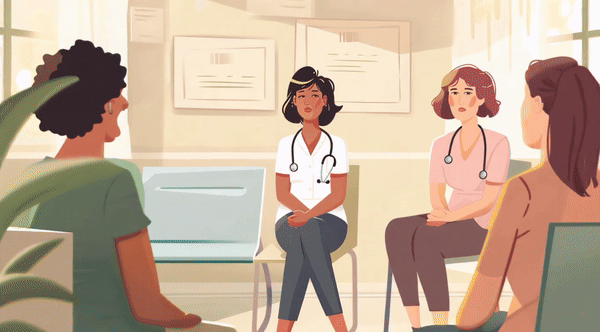In the complex world of healthcare, effective communication is paramount. For patients with limited proficiency in the primary language used in medical settings, language barriers can compromise the quality of care they receive. This is where medical translations play a crucial role in bridging the communication gap. In this blog, we will explore the significance of medical translations, emphasizing the importance of certified services in ensuring patient understanding and healthcare efficacy.
Understanding the Impact of Language Barriers in Healthcare
In a healthcare setting, clear and accurate communication is essential for accurate diagnoses, proper treatment, and informed decision-making. Language barriers can lead to misunderstandings, missed diagnoses, incorrect treatments, and compromised patient safety. For individuals with limited proficiency in the language of the healthcare provider, accessing quality healthcare becomes a formidable challenge.
The Critical Role of Medical Translations
Medical translations involve the accurate conversion of medical information from one language to another, ensuring that patients can comprehend their diagnoses, treatment plans, prescriptions, and other critical healthcare information. This includes written documents such as medical records, consent forms, and medication instructions, as well as verbal communication between healthcare professionals and patients.
Why Certified Medical Translations Matter
Certified translations go beyond standard language translation services. They involve the expertise of professionals who understand the nuances of medical terminology, ensuring precision and accuracy in every translation. Certified medical translators are often linguists with a background in healthcare or professionals who have undergone specialized training in medical translation.
Precision in Medical Terminology
Medical language is highly specialized, and inaccuracies can have severe consequences. Certified medical translators possess a deep understanding of medical terminology in both the source and target languages. This expertise is essential for accurately conveying complex medical information without compromising its meaning.
Click here to know more about highly trained HIPAA compliant remote operators that know the healthcare industry and terminology.
Adherence to Regulatory Standards
In the healthcare sector, compliance with regulatory standards is non-negotiable. Certified translations adhere to these standards, ensuring that translated documents meet the requirements of regulatory bodies and healthcare institutions. This compliance is crucial for legal documentation, patient consent forms, and other critical healthcare paperwork.
Confidentiality and Privacy
Patient confidentiality is a cornerstone of medical ethics. Certified medical translation services prioritize the confidentiality and privacy of patient information. These services often have strict security protocols in place to safeguard sensitive medical data, ensuring that patients can trust in the privacy of their healthcare information.
Cultural Sensitivity
Effective medical communication goes beyond language to encompass cultural nuances. Certified medical translators are well-versed in the cultural sensitivities of both the source and target languages. This cultural competence is vital for accurately conveying information in a manner that respects the cultural backgrounds and beliefs of diverse patient populations.
Legal and Liability Considerations
In the healthcare industry, accuracy is not only a matter of providing quality care but also a legal and liability consideration. Certified translations contribute to risk mitigation by ensuring that translated documents are precise and legally sound. This is particularly crucial for medical records, informed consent forms, and other legal documents.
Improved Patient Outcomes
Access to accurate medical information through certified translations directly contributes to improved patient outcomes. When patients can fully understand their diagnoses, treatment plans, and post-treatment instructions, they are more likely to adhere to medical recommendations, leading to better health outcomes and a higher quality of life.
Facilitating Informed Decision-Making
Informed consent is a fundamental aspect of patient autonomy. Certified medical translations play a pivotal role in ensuring that patients fully comprehend the risks, benefits, and alternatives associated with their healthcare decisions. This empowers patients to make informed choices about their treatment, contributing to a collaborative and patient-centered approach to care.
Final Thoughts
In the realm of healthcare, where clear and accurate communication is a matter of life and death, the importance of certified translations cannot be overstated. These services not only break down language barriers but also ensure that patients receive the information they need to make informed decisions about their health. By prioritizing precision, confidentiality, and cultural sensitivity, certified medical translations contribute to a more inclusive and effective healthcare system that prioritizes the well-being of every patient, regardless of their language proficiency.
This is a sponsored post
Digital Health Buzz!
Digital Health Buzz! aims to be the destination of choice when it comes to what’s happening in the digital health world. We are not about news and views, but informative articles and thoughts to apply in your business.



One comment
check this
February 4, 2024 at 2:43 pm
Thanks for sharing your thoughts about Homepage. Regards